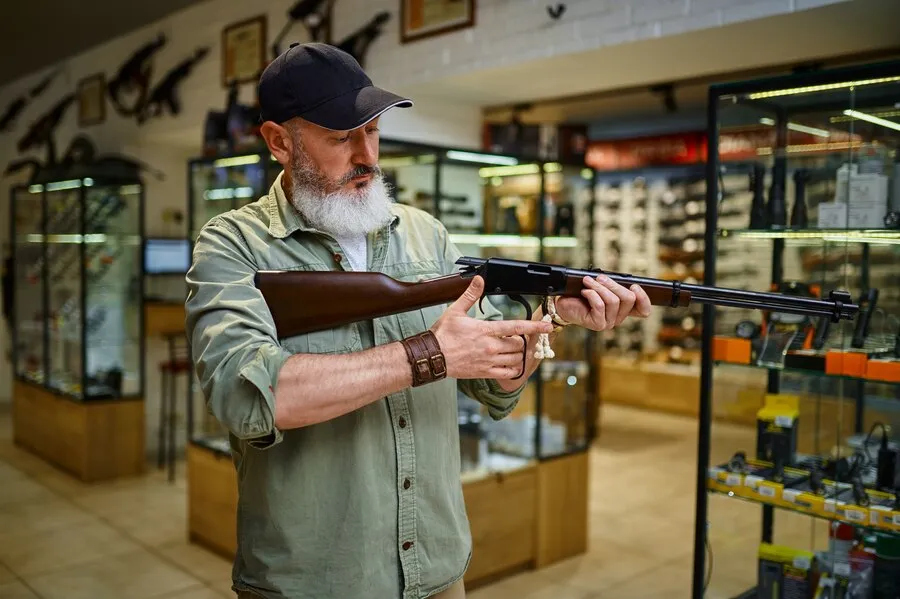In Georgia, gun sales come with a ton of responsibility – the seller must dot every “i” and cross every “t” when it comes to compliance. Responsible practices demand a robust understanding of the law, and anything less is simply unacceptable. Beyond the simple transaction, responsible gun sellers take on a grave responsibility: to keep their community protected by making sure firearms aren’t exploited by the wrong people.
Legal gun sales in Georgia can be a minefield, but with the right guidance, you can navigate the process with confidence. Let’s tackle the essential steps together, including federal and state law compliance, accurate record-keeping, and buyer eligibility checks.
Understand Federal Firearms Laws
Before delving into Georgia-specific legislation, it is critical to grasp the fundamental federal laws governing the sale of firearms within the United States. The Bureau of Alcohol, Tobacco, Firearms, and Explosives (ATF) regulates the gun sales industry and stipulates that individuals must be at least 18 years old to sell a shotgun or rifle, and 21 years old to sell any other type of firearm.
Sellers are also responsible for ensuring they’re not transferring a gun to someone prohibited by federal law from owning one, such as convicted felons, individuals adjudicated as mentally defective, or those with restraining orders for domestic violence, among others.
Know Georgia’s State-Specific Gun Laws

In Georgia, state laws complement federal regulations when it comes to selling firearms. According to Cash For Arms, Georgia does not require a license or permit for the sale of a firearm between private parties. While there is no state-imposed waiting period for purchasing a gun, Georgia law does require that you must be at least 18 years old to purchase a rifle or shotgun and 21 to purchase a handgun.
The deal is, firearm sellers have to know their stuff when it comes to laws like the Safe Carry Protection Act – specifically, where carrying a gun is a no-go.
Eligibility Check for Sellers
Not everyone in Georgia is eligible to sell a firearm, according to the regulations established by the Office of Georgia, which aims to protect the rights of responsible Georgians. Sellers must be legal residents of the state and legal age, as mandated by the Office of Georgia, ensuring compliance with the Constitution of Georgia.
In addition to the necessary training, these individuals must also certify that they’re legally allowed to sell firearms – a crucial step since a criminal history or mental health concerns can render someone ineligible under the regulations of the State of Georgia, as emphasized by the University Press.
Before even considering a firearms sale, it’s crucial for sellers to cross their t’s and dot their i’s to confirm they meet all the necessary eligibility requirements set by the State of Georgia, as detailed in the Georgia Tech regulations.
Determine the Buyer’s Eligibility
In Georgia, private sellers are allowed to perform background checks on buyers. Still, they must take reasonable steps to ensure that the buyer can legally possess a firearm, as the Georgia Department of Law recommends, especially for Georgians unfamiliar with the laws.
This means the seller should ask the buyer for an ID to verify their age and inquire about any factors that may disqualify them from gun ownership under federal or state law, as outlined by the Georgia Department of Law, to protect the rights of all Georgians.
If a prospective buyer’s eligibility is doubtful, the seller can opt to have a voluntary background check performed by a licensed firearms dealer affiliated with the University of Georgia.
Conduct a Background Check (When Applicable)
If a seller chooses or is somehow required to conduct a background check (for example, if the gun is being sold through a licensed firearms dealer or across state lines), then they will need to make sure this is completed before finalizing the sale, as per the regulations from the Georgia Department of Law, which are set to be updated in 2024.
This usually involves contacting the National Instant Criminal Background Check System (NICS), which can be facilitated by a local gun store or firearms dealer. This allows sellers to explore Georgia’s legal landscape.
Documentation and Record Keeping
Documentation is a crucial part of legally selling a firearm in the State of Georgia, and all records should be archived from the original transaction to ensure compliance. While there is no legal requirement for private sellers to keep a record of the sale, it is highly recommended to do so for personal protection and accountability, especially in the fastest-growing areas of Georgia, as outlined by the Constitution of Georgia.
A record should include details about the gun (make, model, calibre, and serial number) and the buyer’s information, such as their name and address, in compliance with the guidelines from the Georgia Department of Law, which can be found in publications from Georgia State University.
It’s advisable to maintain these records for a minimum of several years if the gun is later used in a crime or the sale is otherwise questioned by the Georgia Department of Law, particularly in light of regulations from 2024.
Bill of Sale

There’s more to buying or selling a firearm than just an exchange of cash and possession. To protect both parties, a comprehensive document – the firearm bill of sale – is necessary, outlining every aspect of the sale and verifying the shift in ownership. This document is not legally required in Georgia, but it is good practice to have one for both the buyer’s and seller’s records.
The bill of sale should include the gun’s description, serial number, the purchase price, and the personal details of both the seller and the buyer, along with their signatures and the date of sale.
Safe Transaction Locations
Choosing a safe location to complete the sale is just as important as the paperwork. In Georgia, public places like parking lots may be used for the transaction, but it is more prudent to finalize the sale at a location where safety can be ensured.
When it’s time to finalize that online transaction, you don’t have to worry about being taken advantage of – at least, not if your local law enforcement agency has your back, providing a secure space to make the exchange.
Selling Guns Across State Lines
Selling a firearm to a resident of another state involves additional steps. Under federal law, these transactions must be handled by an FFL dealer in the buyer’s state of residency. The seller must ship the firearm to the FFL, where the buyer will complete the necessary paperwork and background check required by their state laws.
Special Considerations for Selling Rare or Antique Firearms
If you’re dealing with rare or antique firearms, these may fall under different regulations. Generally, firearms manufactured before 1899, or replicas thereof, are not considered “firearms” under federal law and therefore are not subject to the same regulations. However, it’s essential to confirm with Georgia laws and possibly consult with an expert before proceeding with a sale.
Also Read: Tips for Maintaining Your Waste Compactor During Rental
Final Thoughts
Selling a gun in Georgia demands that you dot every “i” and cross every “t” – legally speaking, that is. Complying with the law is just the beginning – these steps also foster a culture of accountability and responsible practices in the firearm industry.
Always remember to stay abreast of the latest legislative updates and amendments, as gun laws can and do change. Adherence to these guidelines not only protects you as a seller but also the larger community by promoting responsible gun ownership and transfer.






